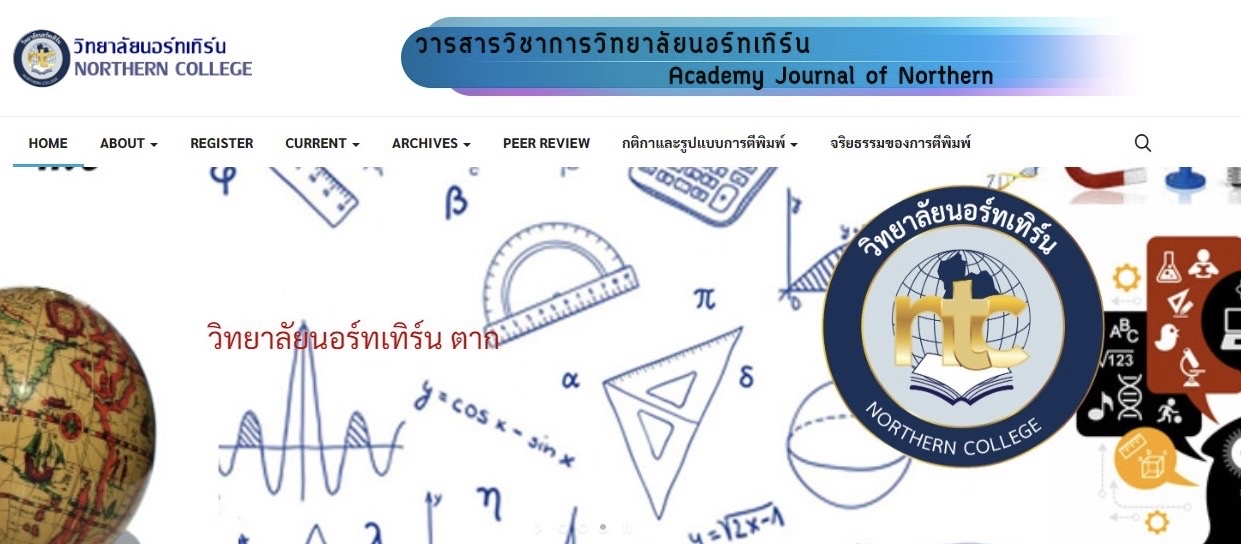Developing agricultural entrepreneurs in the era of Covid-19 towards a green economic path
Keywords:
Agricultural entrepreneurs, COVID-19 crisis, Green economyAbstract
This article aims to enhance understanding of the development of agricultural entrepreneurs during the COVID-19 crisis as an opportunity to promote green business building, green area and green economy under the context of Thailand's economic development towards the Sustainable Development Goals. It begins by explaining the impact of the COVID-19 crisis on the Thai economy and society. Then
explain the concept of developing agricultural entrepreneurs. Pushing and promoting the creation of green business and guidelines for creating green spaces under the concept of SDG's Entrepreneurship and Sustainable Development which is an important goal in building a green economy of Thailand today. This will benefit individuals and entrepreneurs affected by the COVID-19 crisis to have a way to create green business opportunities that will lead to sustainability in the future.
References
กฤษฎา บุญชัย. (2560). ถอดบทเรียนชุมชนเกษตรปลอดภัยและอาหารปลอดภัย. [ออนไลน์]. เข้าถึงได้จาก https://www.ldi.or.th/2017/11/09/ (วันที่ค้นข้อมูล 20 มีนาคม 2565).
ชนายุส ตินารักษ. (2556). เมืองสีเขียว ชุมชนสีเขียว. [ออนไลน์]. เข้าถึงได้จาก http://chanayus. blogspot.com/2013/03/blog-post_746.html (วันที่ค้นข้อมูล 20 มีนาคม 2565).
ฒาลิศา ทาศรีภู. (2562, 1 กุมภาพันธ์). ธุรกิจสีเขียว (Green Business) การปรับตัวในยุคเศรษฐกิจสีเขียว (Green Economy). วารสาร สนค. TPSO Journal. 9(9), 4-5.
ปรารถนา ยิ้มสีใส. (2563). ความต้องการทางการศึกษานอกระบบโรงเรียนเพื่อการพัฒนาเยาวชน เกษตรกร ผู้ประกอบการในเขตพื้นที่อำเภอนครชัยศรี จังหวัดนครปฐม, วิทยานิพนธ์ศึกษาศาสตรมหาบัณฑิต, สาขาวิชาการศึกษาตลอดชีวิตและการพัฒนามนุษย์ มหาวิทยาลัยศิลปากร.
พิทูร ชมสุข, จิราภรณ์ พินนาพิเชษฐ และเพชรลักษณ์ บุญญาคุณากร. (2564). เกษตรกรยุคใหม่ : อาชีพทางเลือก(ทางรอด) ในยุคโควิด 19. [ออนไลน์]. เข้าถึงได้จาก http://www.bot.or.th/Thai/ResearchAndPublications/articles/.
มรกต กำแพงเพชร และคณะ. (2562, 1 มกราคม). คุณลักษณะผู้ประกอบการเกษตรที่ประสบความสำเร็จในธุรกิจเกษตรสีเขียว. วารสารธุรกิจปริทัศน์. 11(1), 266.
สถาบันวิจัยเศรษฐกิจป๋วย อึ้งภาภรณ์. (2563). ครัวเรือนเกษตรไทยในวิกฤติโควิด – 19 หลักฐานเชิงประจักษ์จากการสัมภาษณ์เกษตรกรทั่วประเทศ. [ออนไลน์]. เข้าถึงได้จาก https://www. pier.or.th/abridged/2020/11/ (วันที่ค้นข้อมูล 2 กุมภาพันธ์ 2565).
โสภารัตน์ จารุสมบัติ, นิตยา โพธิ์นอก, จารุพล เรืองสุวรรณ. (2562). เส้นทางเศรษฐกิจสีเขียว. พิมพ์ครั้งที่ 1. กรุงเทพฯ : บริษัท ซิกมา กราฟฟิคส์ จำกัด.
ศูนย์วิจัยนโยบายด้านเศรษฐกิจสีเขียว. (2559). เกษตรสีเขียว. [ออนไลน์]. เข้าถึงได้จาก https://progreencenter.org/2016/02/25/เกษตรสีเขียว-green-agriculture/(วันที่ค้นข้อมูล 2 มีนาคม 2565).
PARPPIM PIM. (2563). นับถอยหลังสู่ 2030 ด้วยแผนพัฒนา 17 ข้อที่จะพาโลกให้ยั่งยืนไปด้วยกัน.[ออนไลน์]. เข้าถึงได้จาก https://www.greenery.org/articles/wastesidestory-sdgs/(วันที่ค้นข้อมูล 14 มีนาคม 2565).
Carter, S., Rosa, P.,(1998) . Indigenous rural firms: farm enterprises in the UK.International Small Business Journal. 16(4), 15–27.
Cheng, Wan-Lae, André Dua, Jonathan Law, Mike Kerlin, Jörg Schubert, Chun Ying Wang,Qi Xu, and Ammanuel Zegeye. ( 2020) . Reimagining the Postpandemic Economic Future. McKinsey & Company.
Eikeland, S., Lie, I., (1999) . Pluriactivity in rural Norway. Journal of Rural Studies.15(4), 405–415.
McElwee G. (2006). The enterprising farmer: A review of entrepreneurship in agriculture. Journal of the Royal Agricultural Society of England January.
Downloads
Published
How to Cite
Issue
Section
License
Copyright (c) 2023 Academy Journal of Northern

This work is licensed under a Creative Commons Attribution-NonCommercial-NoDerivatives 4.0 International License.






